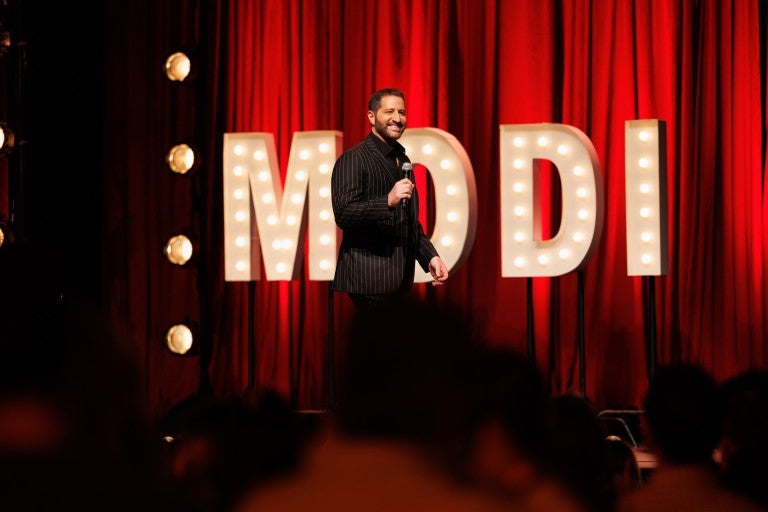October 30, 2018 — New York
A synagogue is made up of many rooms.
There’s the social hall, where congregants gather on Shabbat morning after prayers conclude, and where generations of 12- and 13-year-old bar and bat mitzvahs have embarrassed themselves on the dance floor.
There’s the rabbi’s office, where members of the flock — as individuals, couples or families — have sought counsel from the man or woman who guides their community.
There’s the study hall, where the more academic have turned religious texts over and over, seeking — and perhaps finding — new wisdom in ancient books.
And there’s the sanctuary.
It was into the sanctuary of Pittsburgh’s Tree of Life Or L'Simcha Congregation that a murderous antisemite burst on Saturday morning, armed to the teeth and enraged by the knowledge that Jews actively welcome immigrants and refugees to the United States. Wielding an AR-15-style rifle, he murdered 11 congregants.
This tragedy has led to soul-searching by a nation already mourning the loss of civility in its politics and public discourse. Some have seized this moment to criticize the president for dog-whistling to white supremacists, while others have defended him. Some lament that the synagogue was not protected by armed guards, as are some in this country — and many in Europe and Israel, while others have reiterated their wish that the style of assault rifle the murderer carried would be banned.
We thought real antisemitism was gone
But the central question we Jews should be asking is, “How do we fight antisemitism in 2018?”
Not too long ago, we thought that real antisemitism had passed from this world, that the 6 million Jews slaughtered at the hands of the Nazis and their allies in Europe had permanently inoculated the world against the insanity-inducing disease that is antisemitism.
But that was only a fable we told ourselves. Indeed, just one year after the full story of the Holocaust became known, Polish soldiers, police officers and civilians murdered 42 Jews in the city of Kielce. More recently, violent antisemitism has become a terrifying norm in Western Europe, most notoriously in France.
But we, on this side of the Atlantic, still thought ourselves immune from this sort of bloodshed. Now, with that sense of immunity shattered, how do we respond?
I was reminded recently of an essay written in 1990 by the historian Ze’ev Maghen, when he was a student at Columbia. Though the incident that inspired him to write is long since forgotten, it still makes the rounds in the Columbia Jewish community.
The essay, entitled “How to Fight Antisemitism,” contained this memorable admonition: “A man calls you a pig. Do you walk around with a sign explaining that, in fact, you are not a pig?” Maghen goes on to exhort his fellow Jews to cease protesting antisemitism and to instead live their Judaism as passionately as they can. Otherwise, he warns, in the face of Jew-hatred, “we are less Jews than we are anti-antisemites.”
What would an update to professor Maghen’s monograph look like today? Here is my humble suggestion:
The Hebrew term for a sanctuary is a "beit knesset," literally, a gathering house. Well, my fellow Jews, let us gather. Because more than it is made up of rooms, a synagogue, a Jewish community, is made up of people.
The doors of synagogues are open to all
I can think of no better response to such a heinous violation of the sanctity of a synagogue than to encourage all American Jews to seek spiritual sanctuary in their sanctuaries, and to do so proudly and without fear. My organization, the American Jewish Committee, has launched the #ShowUpForShabbat campaign aimed at filling synagogues across the United States this weekend.
Many 21st century Jews are nonpracticing, agnostic or even atheistic, but you don’t have to follow Jewish religious practices or believe in God to believe in the power of community. We should pack the pews this coming Shabbat, raising our voices in prayer, listening to our rabbis, and rejoicing with our friends. And we should be public about it. If you attend the kind of synagogue where a cellphone wouldn’t be out of place, post a selfie and tag #ShowUpForShabbat. If phones are off-limits for you, then tell your friends you’re going before Shabbat and post a reflection afterward.
The doors of synagogues are open to all. If you consider yourself an ally of the Jewish people, join us in synagogue on Saturday morning. Elected officials: Come stand in solidarity with your constituents (there’s no need to give a speech — our services are long enough already!). Diplomats: Come and show that your country stands with Jews all over the world. Christians, Muslims, Hindus, Sikhs, people of any faith and of none: Come and show up for Shabbat with us this Saturday morning.
There is only one proper response to people who hate Jews. Rabbi Akiva said it best 2,000 years ago: “Ve’ahavta lereyacha kamocha,” “Love your neighbor as you would want to be loved.”
Friends, your Jewish neighbors have stood with you before. Please #ShowUpForShabbat and sit in our sanctuaries with us now.
Seffi Kogen is the American Jewish Committee’s Global Director of Young Leadership. Follow him on Twitter: @seffikogen



